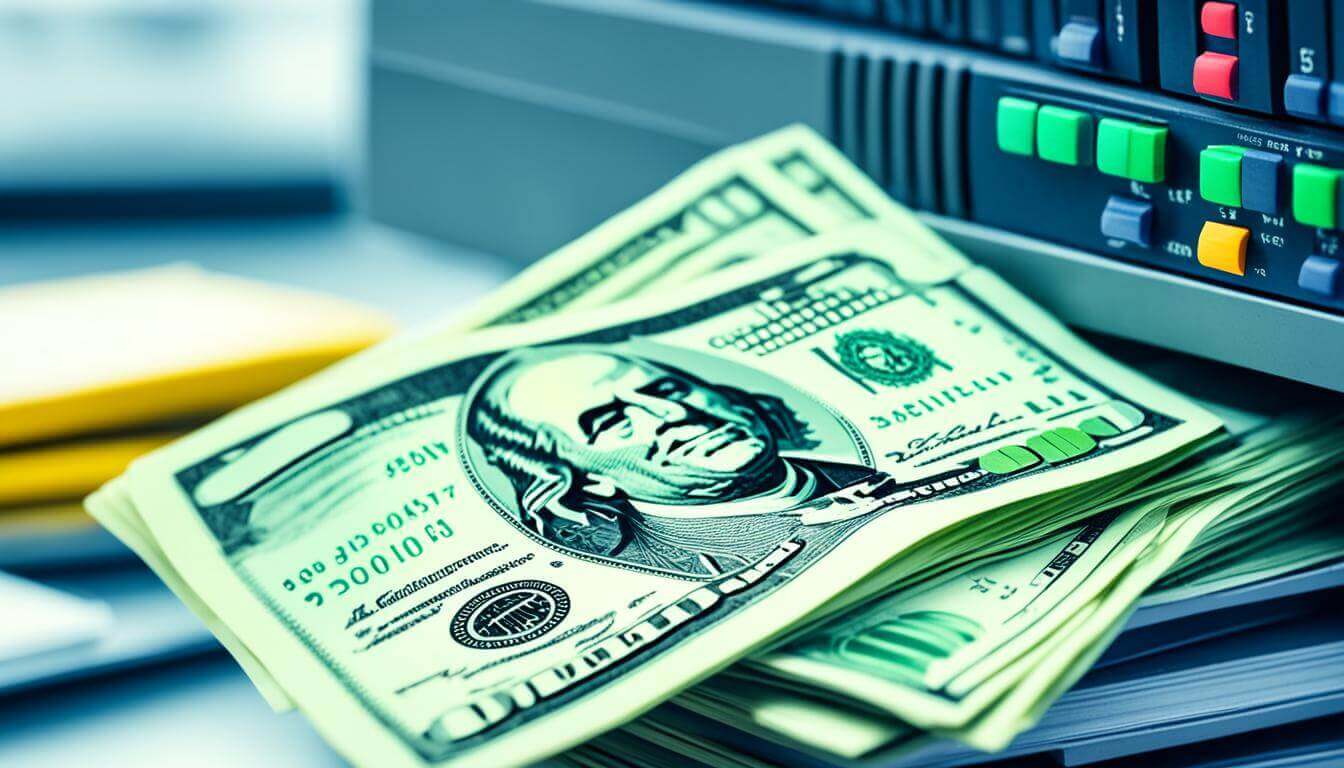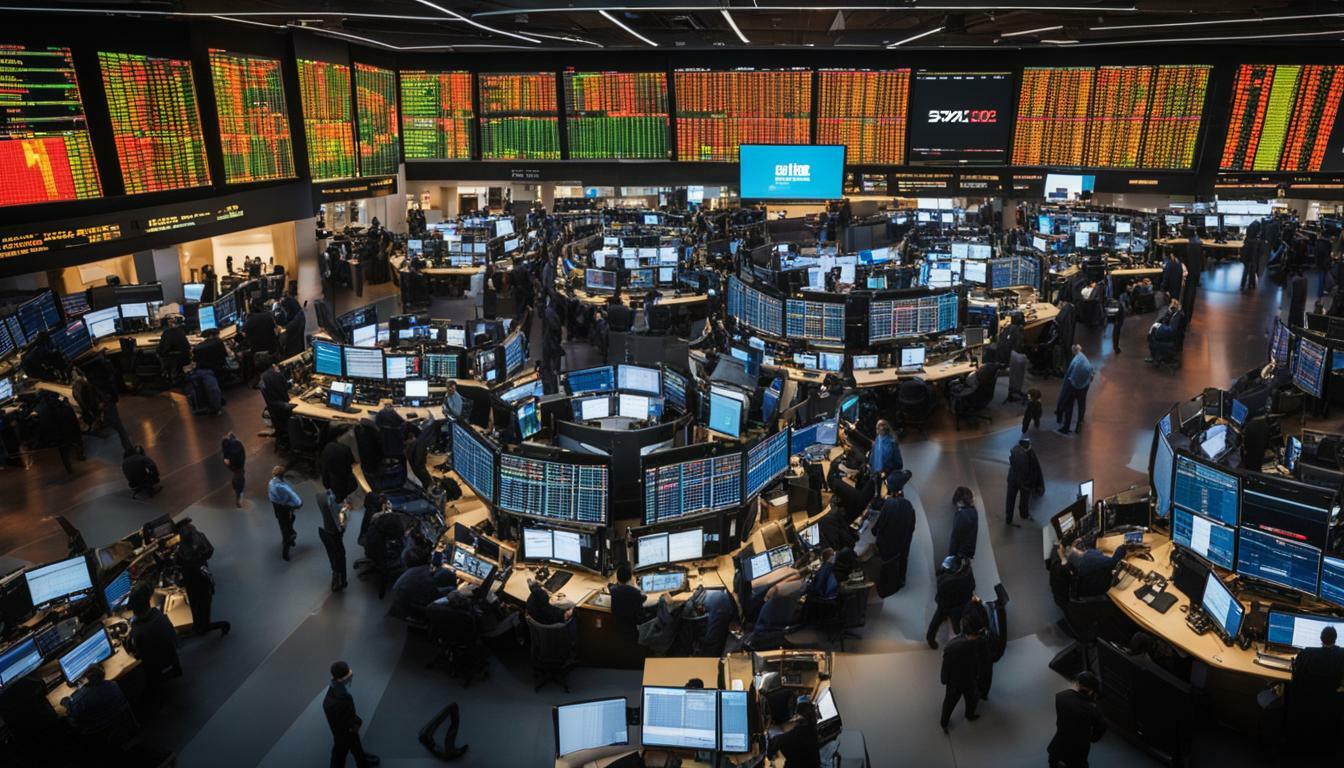Welcome to the exciting world of trade and exchange! Whether you’re a seasoned trader or just starting out, understanding the intricacies of financial transactions is essential. From trading platforms to online trading, there’s a lot to learn, and we’re here to help.
In this section, we’ll explore the basics of trade and exchange, including the different types of trading platforms available and the advantages of online trading. So, grab a cup of coffee and let’s get started!
Key Takeaways:
- Trade and exchange are essential components of the financial world.
- Trading platforms are varied and offer different features, so it’s important to do your research.
- Online trading is convenient and accessible, but it’s important to understand the risks involved.
Understanding Currency Exchange and International Trade
So, you fancy yourself a savvy investor? Well, get ready to broaden your horizons, because we’re about to dive into the world of currency exchange and international trade.
At its core, currency exchange is the act of converting one currency into another. Seems simple enough, right? However, when it comes to international trade, the concept of currency exchange becomes much more complex.
In international trade, currency exchange rates can significantly impact the cost of goods and services. For example, say you’re an American business owner looking to import goods from China. The cost of those goods in Chinese yuan may be much cheaper than the cost in U.S. dollars. But if the exchange rate between the two currencies is unfavorable, the overall cost of importing those goods may actually end up being more expensive than if you were to source them domestically.
But it’s not just businesses that need to pay attention to currency exchange rates. As a global citizen, you’re constantly impacted by these rates, whether you realize it or not. When you travel to foreign countries, the exchange rate determines the value of your money in that country’s currency. And when you purchase goods online from overseas retailers, you may be subject to additional fees and charges due to currency conversions.
“Currency exchange rates can significantly impact the cost of goods and services.”\– Trade and Exchange
So, how are currency exchange rates determined? Well, it all comes down to supply and demand. Just like with stocks, the value of a currency is affected by a variety of economic and geopolitical factors, including inflation, interest rates, and political stability.
And while the value of one currency may fluctuate independently of others, the vast network of global currency exchange means that exchange rates are interconnected and can have a ripple effect throughout the global economy.
So, there you have it – a brief introduction to the world of currency exchange and its impact on international trade. As you navigate the increasingly globalized economy, remember to keep an eye on those exchange rates!
Exploring the Stock Market and Foreign Exchange
So, you’ve decided to take the plunge and explore the world of finance. Congratulations! Today, we’re going to dive deep into the complexities of the stock market and foreign exchange.
Let’s start with the stock market. At its core, the stock market is a place where stocks are bought and sold. But it’s not as simple as just buying low and selling high. Stocks are valued based on a multitude of factors, from company performance to global events and market sentiment.
Understanding how to read stock charts and determine patterns can give you a leg up in the game. However, it’s important to remember that the stock market can be volatile and unpredictable. That’s why it’s always wise to do your research and diversify your portfolio.
Now, let’s shift our attention to foreign exchange. As we discussed earlier, foreign exchange is the process of exchanging currencies between different countries. The values of these currencies fluctuate constantly, and can be impacted by a variety of factors such as political instability and economic growth.
Foreign exchange plays a crucial role in international trade, as businesses need to exchange currencies in order to conduct transactions with other countries. Skilled forex brokers who understand how to navigate the foreign exchange market can offer invaluable assistance in this process, providing expert guidance and access to more competitive exchange rates, which can significantly improve the efficiency and cost-effectiveness of international transactions.
Whether you’re interested in the stock market or foreign exchange, there’s never been a better time to get involved. With the plethora of resources and trading platforms available, you can start your financial journey today. Remember, knowledge is power, so keep learning and stay savvy.
Understanding Trade Finance and Commodity Exchange
Congratulations! You’ve made it to the most exciting part of our financial transactions tour – trade finance and commodity exchange. This is where the real magic happens. Buckle up and get ready to learn about the mechanisms that facilitate international trade and the trading of valuable commodities.
Financial Instruments and Mechanisms
Trade finance is the backbone of international trade. It involves various financial instruments and mechanisms that facilitate the exchange of goods and services between nations. Some of the most common financial instruments include letters of credit, bank guarantees, and documentary collections. These instruments provide security to the buyer and seller and mitigate the risks associated with international trade.
One of the most popular mechanisms in trade finance is factoring, which involves the sale of accounts receivable to a third party, known as a factor. Factoring enables companies to receive payments for their products and services upfront, without having to wait for the buyer to pay the invoice.
Commodity Exchange
Commodity exchange is the trading of commodities such as oil, gold, and agricultural products. These commodities are traded on specialized exchanges, such as the New York Mercantile Exchange (NYMEX) and the Chicago Mercantile Exchange (CME).
The price of commodities is determined by supply and demand, as well as current events that may impact their availability or future value. For example, the price of oil may increase due to political instability in the Middle East, while the price of gold may decrease due to a stronger US dollar.
Trade Finance and Commodity Exchange in Action
Let’s take a look at a hypothetical scenario to see how trade finance and commodity exchange work together. Imagine a US-based company selling agricultural products to a buyer in China. The buyer is concerned about the quality of the products and wants to ensure that the seller delivers as promised.
To mitigate this risk, the seller can offer a letter of credit, which guarantees payment upon delivery. The buyer agrees to this arrangement and opens a letter of credit with their bank. The seller then ships the products to China and presents the necessary documents to the bank, which releases the payment to the seller.
Once the seller receives payment, they may choose to sell their accounts receivable to a factor to receive immediate cash. The factor then assumes the risk of collecting payment from the buyer.
Meanwhile, the agricultural products are sold on the commodity exchange, where their price is determined by supply and demand. The seller may choose to trade their products on the exchange or hold onto them for future sales.
And there you have it – a brief overview of trade finance and commodity exchange. Congratulations on expanding your knowledge of financial transactions. Now go out and conquer the world of international trade!
Embracing Online Trading Platforms for Dynamic Financial Transactions
So, you want to dabble in online trading? Whether you’re a seasoned pro or just starting out, there are a few things you should keep in mind when using trading platforms for your financial transactions.
First and foremost, make sure the trading platform you’re using is reputable and trustworthy. Do your research and read reviews before committing your funds to any platform. After all, you wouldn’t want to entrust your hard-earned money to a platform that could disappear into thin air overnight.
Next, take advantage of the various tools and resources offered by the trading platform. Most platforms provide real-time market data, charting tools, and news updates that can help you make informed decisions.
When it comes to online trading, it’s also important to set realistic expectations. Don’t expect to get rich overnight, and don’t risk more than you can afford to lose. Remember, trading can be a volatile and unpredictable business, so it’s always best to err on the side of caution.
At the same time, don’t be afraid to take risks and try new things. After all, the beauty of online trading is that it’s accessible to anyone with an internet connection and a bit of know-how. So, go ahead and explore the different trading options available to you, from stocks and bonds to cryptocurrencies and commodities.
In conclusion, online trading platforms have revolutionized the world of finance, offering dynamic and accessible ways to trade and exchange. By following these tips and staying informed, you can embrace the power of online trading and make the most of your financial transactions. Happy trading!








